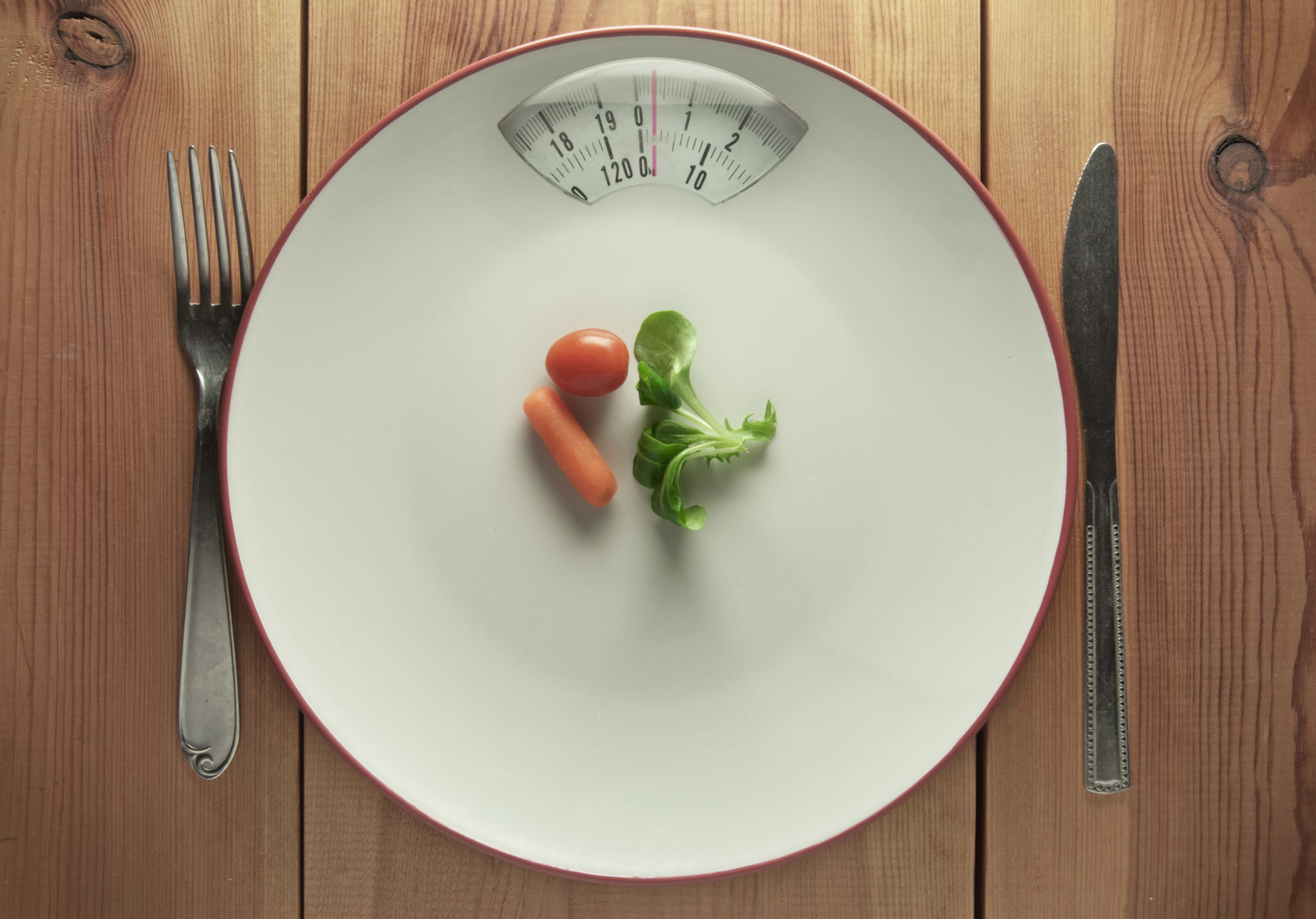Author: Amanda Cofer, MPH
Chances are you or someone you know has worked to lose weight on some kind of low-carb ketogenic diet. It’s growing popularity over the last few years has meant that these foods have made their way into grocery stores, recipe books, restaurants, and of course the weight loss and health industry. We’re wondering though, does this low-carbohydrate, high-fat diet actually work to help you lose weight (and keep it off) or is it just a trendy way to eat? This keto diet review will break this question down into some answers, pro-con style.
Ketogenic Diet and Nutrition
Before getting into the weeds with other details, let’s break down ketogenic diet nutrition and what that means for your body and weight loss. Traditionally, a perfect keto diet is both low-carb and high-fat with a macronutrient combination of 75% of calories coming from fat, 20% from protein, and only 5% coming from carbs. If this seems intense, well, that’s because it is. The whole goal is to reach a fat burning state known as ketosis. In order to do this, the body’s main source of fuel (carbs, cough, cough) are drastically cut, sending your metabolism to its next line of defense, fat. While there may be some pros that come along with a low-carb ketogenic diet, there are also some cons.
Pros: Processed sugars are limited on ketogenic low-carb diets. Increasing leafy greens and non-starchy vegetables, such as spinach, kale, cauliflower, and broccoli is encouraged. You can include these in larger quantities for some vitamins and fiber without having to worry too much about the carb count. Steering clear of alcohol and increasing your water intake is encouraged and a must. Your blood sugar might be a bit more stable and over time, you may see cravings become minimal.
Cons: Ketogenic diets for weight loss put restrictions on foods which make these diets hard to maintain in the long term. High-fat diets can have heart health implications, if you’re not careful. Because many sources of carbs are limited, you may find your meals lacking fiber which impacts digestive health. Meal planning is a huge must. Without meal planning you may get into the cycle of feeling as if you’re always “falling off the wagon.” If meal planning is not your strong suit, this could be a great time to learn and practice, but be prepared to keep it up. Low-carb ketogenic diets are also not typically safe for those taking insulin. Make sure to talk with your doctor before making drastic changes to your diet in order to lose weight. You may also experience heartburn, muscle cramps, and dehydration due to this diet’s restrictions.
Ketogenic Diet and Exercise
We all probably have heard about the impacts of keto diets nutrition wise, but what about exercise? When losing weight, exercise is an important component not only to see progress in the scale but also to maintain muscle health and bone health while you lose weight. On keto, this still rings true. There are some side effects early on in the keto game that you may need to look out for though as they could impact your work outs (we’ll get to these in a minute). So what are the pros and cons of working out while on a low-carb ketogenic diet?
Pros: Some research suggests that keto diets might help improve endurance as the body is already primed to be in a fat burning state. There’s thought through this research as well that ketosis may also aid in muscle repair. One study of athletes found that ketogenic diets aided in increasing fat burning over a 4-week period which improved body composition.
Cons: On the flip side, there is a chance that a low-carb, high-fat diet could actually impair workout performance and endurance. Due to side effects such as feeling light headed and fatigued you may have to skip the gym during the first few weeks of starting your ketogenic weight loss diet. This could throw a bit of a wrench in your routine and maybe make it difficult to get back into it. If your goal is to maximize your muscle growth, keto probably isn’t going to be for you. The high-fat, low-carb nature of this type of diet also can lend itself to decreased protein intake and lower calories. While lower calories may be good news for weight loss, you may not see yourself gain too much muscle mass.
Ketogenic Diet Safety
With anything you try for your health, safety should always be a top priority. Weight loss may be a desired side effect of a ketogenic diet, but at what costs? For some there are other desired side effects and many report more mental focus. Medical professionals might also encourage a high-fat diet for particular patients as well. Clinically, ketogenic diets have been shown to help cancer patients and those with chronic epilepsy. So how safe is a ketogenic diet for those who are simply looking to lose weight?
Pros: We’ve mentioned a few already! Some benefits to ketosis might include improved mental focus. With limited carb intake, which also means less sugar, many report that they feel mentaly sharp and alert. This is due to ketones (what fats are broken down into) being a more consistent source of fuel for the brain. Ketogenic diets increase fats, which increases satiation, which means over time you eat fewer calories. This is a biggie for weight loss and managing calories. Lastly, you may experience less inflammation on a ketogenic diet.
Cons: While there are benefits, there are also some risks that come along with eating a low-carb ketogenic diet for weight loss. First, there is a risk of electrolyte loss and imbalance. This can cause a cascade of things ranging from the occasional muscle cramp to heart arrythmias. This is due to increased urination from decreased carb intake and your body’s glycogen stores depleting. This increase in urination, while maybe upping your steps, also ups your chances of becoming dehydrated. Dehydration might lead to feeling the impacts of the “keto flu” or, in other words, an unforgiving headache. Secondly, nutritional deficiencies are likely due to the tight restrictions on carbs. Foods like beans, whole grains, and fruits, to name a few are high in fiber along with essential vitamins that our body needs to function optimally. Over time, missing out on these could lead to serious health issues such as bone loss. Lastly, and the one with the most potential discomfort is the risk of kidney stones. Dehydration combined with increased protein creates the perfect storm for kidney strain.
Ketogenic Diet for Weight Loss
After laying all of that information out on the table, we’re on to our grand finale. Losing weight on a ketogenic diet. What gives? When looking to lose weight, research accordingly and make sure to adequately vet any diet that makes big weight loss claims. Low-carb ketogenic diets have been shown to promote weight loss mainly due to the decreased caloric intake and more research is needed to determine effectiveness in the long term. Here is what we know so far.
Pros: In the short term, you’ll probably see weight loss success. One study showed that those who stick with their keto diet for roughly 4 month saw weight loss from fat and improvements in cholesterol levels. However, this same study points out that dietary advice and support is also helpful for encouraging adherence to a low-carb, high-fat diet. Another factor of losing weight on a ketogenic diet is losing water weight. This might decrease the feeling of bloat.
Cons: On the other hand, losing water weight could be a downside. As we’ve mentioned dehydration is a risk of low-carb diets, and losing too much weight too quickly is likely to play a role in this. While you’ll see short term success, long term weight loss success is less likely. Studies show that low-carb diets have potential to be only marginally effective compared to more balanced low-calorie approaches. Ketogenic diets also are not typically sustainable over the long term. This means that any weight you lost in the short term, could easily return.
Related Posts
This is Chapter 3 of Noom's Guide to keto:
Ketogenic Diet: The Bottom Line
In the end, low-carb ketogenic diets can have their pluses when it comes to weight loss however there are some very clear downsides that need to be considered for your safety, health, and your weight loss success. It’s likely that starting a ketogenic diet could fuel the diet cycle creating a pattern of weight loss and regain as well as labeling food in a restrictive way. This is where Noom steps in and can help you lose weight without losing the carbs.
Finding sustainable dietary habits that support your weight loss in a balanced way will not only be better for your body but also your mindset. Noom takes a more holistic approach to weight loss that the ketogenic approach might be lacking. And, hey, if keto is something that you want to try, your Noom coach can provide the support you need to set goals and create healthy habits around your carb intake. Curious? Give Noom a try and start losing weight with balanced habits and lasting lifestyle change.












